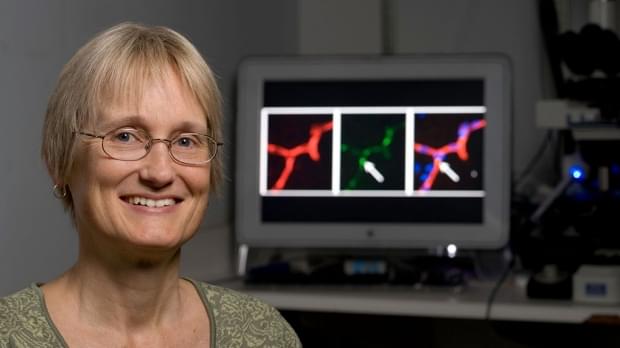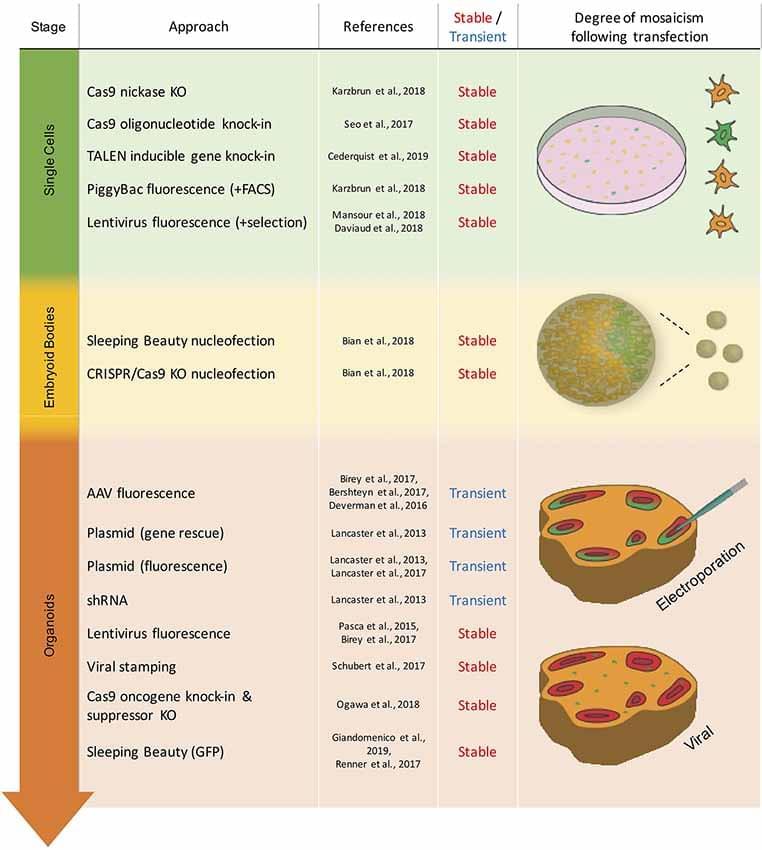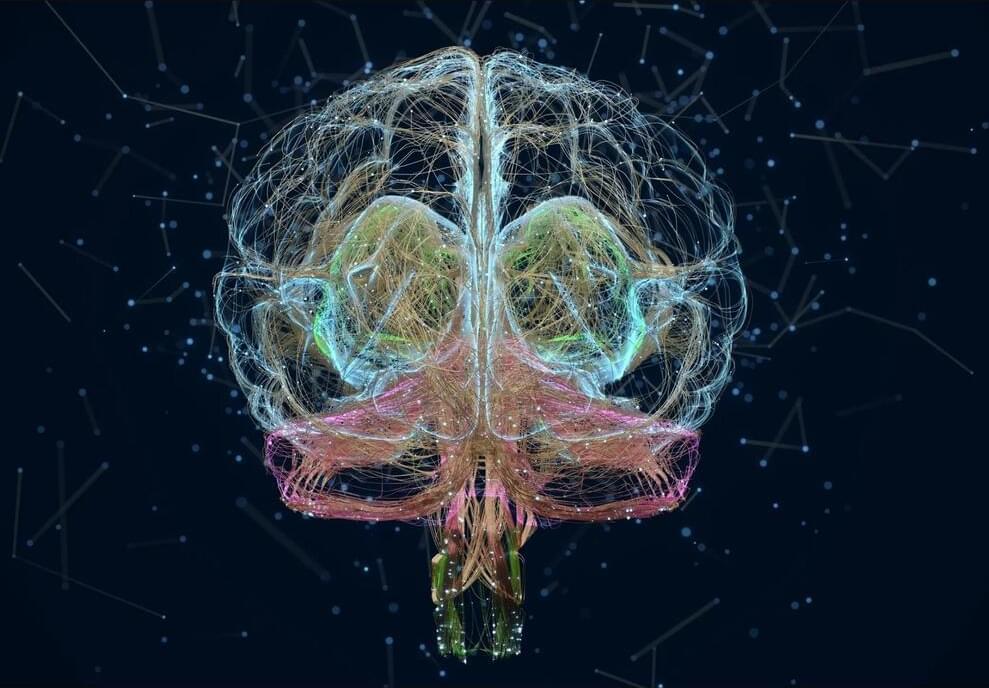The improved gene-editing approach combines prime editors with a more efficient recombinase to insert or substitute gene-sized DNA segments.


I don’t know what’s causing the sound problem my apologies.
Randal and Keith discuss WBE, Mind Uploading and fascinating tangents in neuroscience and neuroprosthetics and pathways for the future, as well as the Carbon Copies foundation and the new book ‘Contemplating Oblivion’ by Keith Wiley.
Many thanks for tuning in!
Please support SciFuture by subscribing and sharing!
Have any ideas about people to interview? Want to be notified about future events? Any comments about the STF series?
Please fill out this form: https://docs.google.com/forms/d/1mr9P…
Kind regards.

Researchers have discovered a “spatial grammar” in DNA that redefines the role of transcription factors in gene regulation, influencing our understanding of genetic variations and disease.
A recently uncovered code within DNA, referred to as “spatial grammar,” may unlock the secret to how gene activity is encoded in the human genome.
This breakthrough finding, identified by researchers at Washington State University and the University of California, San Diego and published in Nature, revealed a long-postulated hidden spatial grammar embedded in DNA. The research could reshape scientists’ understanding of gene regulation and how genetic variations may influence gene expression in development or disease.

Among the many ways neuroscientists think Alzheimer’s disease may strip away brain function is by disrupting the glucose metabolism needed to fuel the healthy brain. In essence, declining metabolism robs the brain of energy, impairing thinking and memory.
Against that backdrop, a team of neuroscientists at the Knight Initiative for Brain Resilience at Stanford’s Wu Tsai Neurosciences Institute have zeroed in on a critical regulator of brain metabolism known as the kynurenine pathway. They hypothesize that that the kynurenine pathway is over-activated as a result of amyloid plaque and tau proteins that accumulate in the brains of patients with Alzheimer’s disease.
Now, with support from research and training grants from the Knight Initiative, they have shown that by blocking the kynurenine pathway in lab mice with Alzheimer’s Disease, they can improve, or even restore, cognitive function by reinstating healthy brain metabolism.
Mikey Siegel, with a background in robotics from the MIT Media Lab, shares insights from his decade-long exploration into technology’s role in human well-being and consciousness. He discusses the profound potential of Artificial General Intelligence (AGI) shaped with compassionate and wise values. Siegel emphasizes the importance of the human developmental process in creating benevolent AI and the integration of contemplative practices in tech development. He envisions a future where AGI supports human development globally with love and care, akin to a parent nurturing a child, ultimately fostering a connected and compassionate society.
00:00 Introduction to Mikey Siegel and His Work.
01:09 The Profound Impact of AGI on Humanity.
02:42 The Role of AI in Shaping Reality.
04:06 The Vision of a Compassionate Super Intelligence.
07:26 Creating AI from a Culture of Compassion.
07:51 Integrating Human Development in AI Creation.
09:28 Ownership and Developmental Stages of AI
12:13 Demystifying the Mystical Through Science.
14:53 Preparing for the Future of AI
SingularityNET was founded by Dr. Ben Goertzel with the mission of creating a decentralized, democratic, inclusive, and beneficial Artificial General Intelligence (AGI). An AGI is not dependent on any central entity, is open to anyone, and is not restricted to the narrow goals of a single corporation or even a single country.
The SingularityNET team includes seasoned engineers, scientists, researchers, entrepreneurs, and marketers. Our core platform and AI teams are further complemented by specialized teams devoted to application areas such as finance, robotics, biomedical AI, media, arts, and entertainment.
Website: https://singularitynet.io.
X: https://twitter.com/SingularityNET
Instagram: / singularitynet.io.
Discord: / discord.
Forum: https://community.singularitynet.io.
Telegram: https://t.me/singularitynet.
WhatsApp: https://whatsapp.com/channel/0029VaM8…
Warpcast: https://warpcast.com/singularitynet.
Mindplex Social: https://social.mindplex.ai/@Singulari…
Github: https://github.com/singnet.
Linkedin: / singularitynet.

To be able to make full use of these modeling systems, researchers have developed a growing toolkit of genetic modification techniques. These techniques can be applied to mature brain organoids or to the preceding embryoid bodies (EBs) and founding cells. This review will describe techniques used for transient and stable genetic modification of brain organoids and discuss their current use and respective advantages and disadvantages. Transient approaches include adeno-associated virus (AAV) and electroporation-based techniques, whereas stable genetic modification approaches make use of lentivirus (including viral stamping), transposon and CRISPR/Cas9 systems. Finally, an outlook as to likely future developments and applications regarding genetic modifications of brain organoids will be presented.
The development of brain organoids (Kadoshima et al., 2013; Lancaster et al., 2013) has opened up new ways to study brain development and evolution as well as neurodevelopmental disorders. Brain organoids are multicellular 3D structures that mimic certain aspects of the cytoarchitecture and cell-type composition of certain brain regions over a particular developmental time window (Heide et al., 2018). These structures are generated by differentiation of induced pluripotent stem cells (iPSCs) or embryonic stem cells (ESCs) into embryoid bodies followed by, or combined, with neural induction (Kadoshima et al., 2013; Lancaster et al., 2013). In principle, two different classes of brain organoid protocols can be distinguished, namely: (i) the self-patterning protocols which produce whole-brain organoids; and (ii) the pre-patterning protocols which produce brain region-specific organoids (Heide et al., 2018).

The world’s first brain prosthesis has passed the first stages of live testing.
The microchip, designed to model a part of the brain called the hippocampus, has been used successfully to replace a neural circuit in slices of rat brain tissue kept alive in a dish. The prosthesis will soon be ready for testing in animals.
The device could ultimately be used to replace damaged brain tissue which may have been destroyed in an accident, during a stroke, or by neurodegenerative conditions such as Alzheimer’s disease. It is the first attempt to replace central brain regions dealing with cognitive functions such as learning or speech.



A molecular biology research team at the University of Miami Miller School of Medicine has become the first to map out how mitochondrial messenger RNA folds in human cells.
The research advances knowledge about the expression of genes in the mitochondria and paves the way for identification of therapeutic targets for mitochondrial neurodegenerative diseases.
“Dysfunctional mitochondria can cause devastating diseases, frequently with childhood-onset, known as mitochondrial encephalomyopathies. Despite advances in identifying genes responsible for these disorders, their pathophysiological mechanisms have been poorly understood,” said Antoni Barrientos, Ph.D., professor of neurology and biochemistry and molecular biology at the Miller School. “This was partly due to a lack of a full understanding of mitochondrial gene expression. Specifically, nothing was known about how mitochondrial messenger RNA folds and how that could influence its stability and translation in health and disease.”